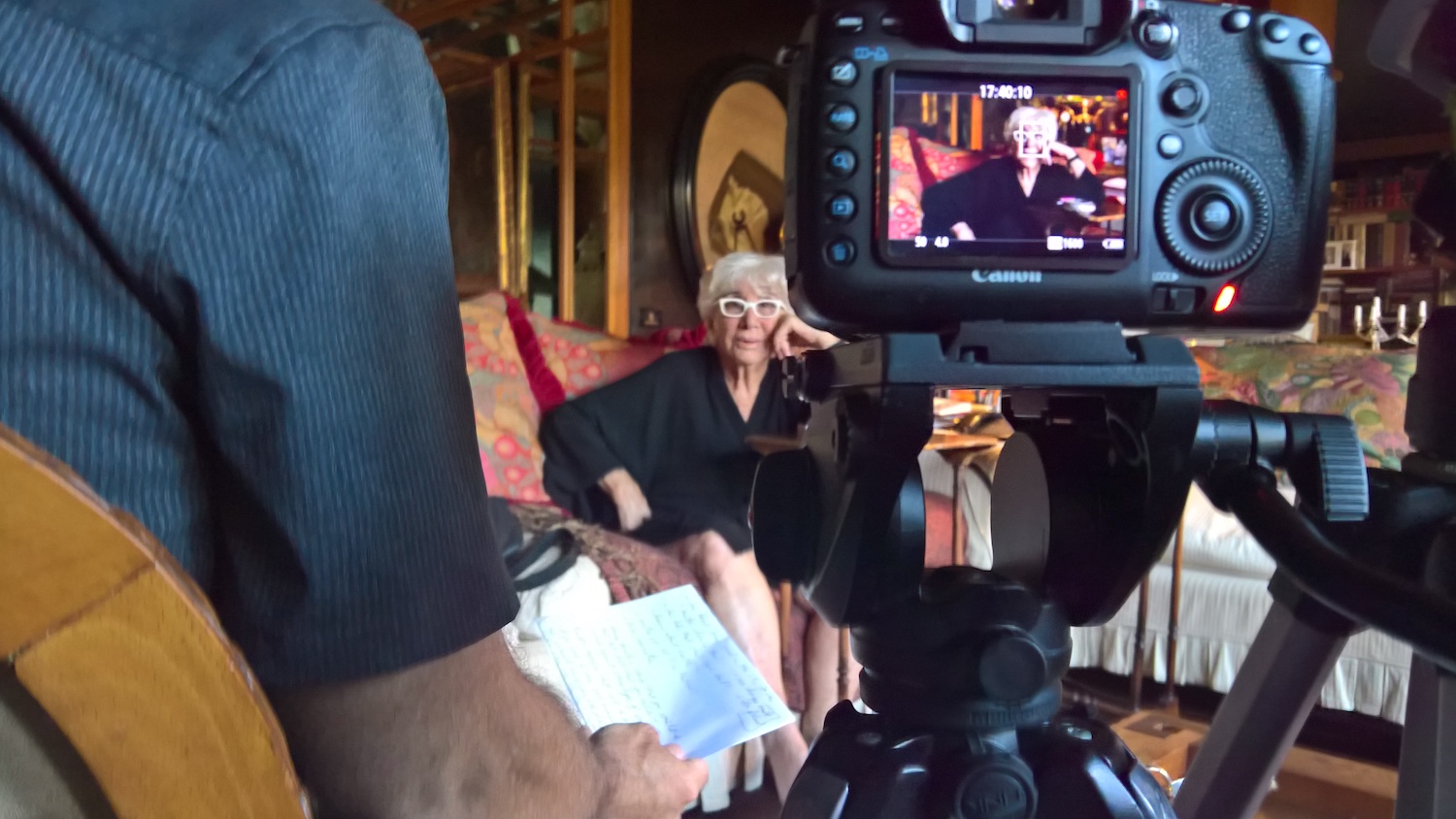SEARCHING FOR MR. RUGOFF

(Searching for Mr. Rugoff, the latest from longtime film producer, distributor and marketer Ira Deutchman, is in select theaters now. Like what you see here on Hammer to Nail? Why not give just $1.00 per month via Patreon to help keep us going?)
The stultifying sameness of popular culture in a given age (or any age) can numb the mind and exhaust the soul. For those fortunate to live in places where a greater variety of art and entertainment exist, all the better for them. But even in such cosmopolitan hotspots, the outside world won’t always come to visit unless you invite it in. Enter the impresario, greasing the skids for access to the bold and the new.
In the 1960s and 1970s, Don Rugoff was such a person for the world of foreign and independent cinema, operating out of his native New York but having an impact far beyond that city. His distribution company, Cinema 5, for two decades proved enormously innovative and influential in its approach to marketing and releasing films that might otherwise not have made it very far, at least in the United States. In the fascinating new documentary Searching for Mr. Rugoff, longtime film producer, distributor and marketer Ira Deutchman, making his feature-film directorial debut, takes us on a journey into his subject’s heyday, showing us how what happened back then informs today’s movie landscape.
It’s a voyage both historical and personal, as Deutchman, himself, spent three years working for Rugoff when just out of college. He places himself front and center in the narrative, as well, and we follow him as he travels to Martha’s Vineyard, where Rugoff died in 1989. There, he investigates what happened after Rugoff lost control of his company to William Forman in 1979, a devastating blow that left him with barely an income and no more connections. The movie starts with this sad image of a once-powerful figure, then circles back to his period of greatest success before returning to the depressing final chapter. It’s a comprehensive portrait, which is a must-see for cinephiles. Even people with a less vested interest in the history of movies should find the rise-and-fall narrative compelling. After all, it’s a very human trajectory.
Rugoff’s father, as we learn, started what would become the family business in the silent era, building up a chain of movie theaters which his son would inherit upon his unexpected death at 62 (the same age at which Don would later die). In the early 1960s, Rugoff formed his Cinema 5 outfit, redesigning his father’s theaters into artfully designed spaces that served as showcases of cutting-edge design. Sadly, most of them are now gone, or repurposed, though Manhattan’s Paris Theater remains. Thanks to the vast array of archival material, both still and moving images, on display here, we discover these glory days of the art-house circuit, as America slowly opened itself up to movies from beyond its shores and outside the mainstream.
Deutchman also interviews copious folks who knew, and worked with, Rugoff. These include Rugoff’s ex-wife Evangeline, his two sons, and people like Deutchman whose first (and sometimes later) careers were with Cinema 5. There are also many filmmakers who benefitted from Rugoff’s eye for talent and willingness to back up-and-comers, among them Bruce Brown (now deceased), Robert Downey Sr. (same), Costa-Gavras (whose 1969 Z won an Oscar thanks to Rugoff’s efforts), Lina Wertmüller (whose American success and subsequent Oscar nomination, for the 1975 Seven Beauties, were also due in no small part to Rugoff), Sarah Kernochan and more. Though some recognize that Rugoff could be difficult and demanding, no one denies his ability to create masterful ad campaigns. In his hands, the New York indie movie-going experience became an event, with blockbuster queues akin to that of movies like Jaws everywhere else. Those screenings created enough buzz to lure in audiences beyond the Big Apple, too.
All good things must come to an end, however, and even emperors may eventually fall. Such was the case with Rugoff, and by the time we return to his lonely end in Edgartown, Massachusetts, we have come to appreciate all his contributions to the film industry. As Deutchman, who owes a career debt to Rugoff beyond those early years working for him, acknowledges, much of modern independent-film distribution flows from what Cinema 5 accomplished. To all who rejoice at the choices in our cinematic feed beyond the latest Marvel release, we must pay tribute to Rugoff and those who came after for creating space for those alternatives. We therefore emerge from Searching for Mr. Rugoff educated, entertained, and very grateful.
– Christopher Llewellyn Reed (@ChrisReedFilm)











